Affectiva: The Company Humanizing Technology

Have you ever imagined that your devices will someday be able to read your emotions and act accordingly?
Well, Egyptian scientist Rana El Kaliouby was able to do this. She started investigating this as a research project at MIT, then founded her startup Affectiva in 2009. Affectiva aims to bring emotional intelligence to the digital world with its emotion recognition technology that senses and analyzes facial expressions for emotion.
“What Affectiva wants to achieve, is simply to humanize technology. Because today we use and actually depend on technology in our everyday lives. We know that these devices are smart but they don’t understand the user's feelings, and they don’t react based on the human emotions,” Mohamed Ezzeldin, Machine Learning Scientist at Affectiva, said.
‘Emotion AI’ is a term invented by Affectiva, it is also known as emotion recognition or emotion detection technology. In market research, it is commonly referred to as ‘facial coding’. The Emotion AI unobtrusively measures unfiltered and unbiased facial expressions of emotion, using any color camera.
Like the face, speech contains strong signals for human emotions. “We offer solutions for emotion recognition through facial expressions, and we are looking into recognizing emotions from other signals,” Mohamed Ezzeldin explained.
Affectiva’s headquarters is located in Boston, United States, with another office in Cairo, Egypt. Most of the leading market research firms like Millward Brown, LRW, Added Value and Unruly, and brands like Mars, Kellogg’s and CBS, use Affectiva’s technology to measure consumer emotional responses to digital content. Emotion AI is used in gaming, automotive, robotics, education, healthcare, gaming, experiential marketing, retail, human resources, video communication, and more.
“As more of our lives become digital, we are fighting a losing battle,” Rana El Kaliouby said in her TEDtalk. “What I’m trying to do instead is bring emotions into technology. We have a golden opportunity to reimagine how we connect with machines and therefore how we, as human beings, connect with one another.”

Egyptian Scientist Rana El Kaliouby, co-founder of Affectiva.
Challenges
According to Ezzeldin, the biggest challenge Affectiva faced was the adoption. Most of Affectiva’s clients feared that their customers won’t be okay with sharing their images and videos for external use – because they had to be sent to an online server for processing. However, Affectiva overcame this challenge by launching its offline Software Development Kit (SDK) that detects emotions in real time on a device.
“This was a big challenge because of the artificial intelligence software, in general, is slow and requires high computational power. So it wasn’t an easy task to run this software on a device, but at the end, we succeeded and we have our SDK running smoothly,” Ezzeldin said.
Impact
Affectiva gives the brands and the companies a better and bigger insight on consumer emotional responses. As every business is trying to collect consumers’ feedback and opinions in different ways - like surveys and sentiment analysis.
“Affectiva will not only get the consumers’ opinion and feedback, but it gets their actual emotions while using, watching, or even looking at a product in supermarkets.”
Ezzeldin gave us an example of the use of Affectiva’s SDK product saying that their digital signage partners at Cloverleaf, a company for retail solutions, used the SDK product by putting shelfPoint - an LCD display with eye-level sensors that recognize joy, sadness, happiness, or disgust in a shopper’s face – between shelves. Shelfpoint can easily know the consumer’s emotions while approaching the product or looking at it. And accordingly, the screens present some promotional content.
Affectiva’s impact on the society is based on its input on the education and healthcare industries. “A learning app called ‘Little Dragon’ is using Affectiva’s SDK to detect facial expressions and let the app react accordingly. The learning content changes based on the user’s emotions if he’s engaged, distracted, or confused,” Ezzeldin explained.
Little Dragon app constantly reads and responds to the users’ emotions: when things are getting too difficult or too easy, Little Dragon will adjust the content to keep them in an ideal flow of learning.
Another example where Affectiva could have a high impact on is the Massive Open Online Courses (MOOCs). “There are thousands of students taking these courses online and they are using their laptops or the smart devices to watch the videos. So, it’s easy for the instructors, using our emotions detection products, to get the students’ feedback on a slide-by-slide basis and to be able to change the content based on the feedback they get. They could know the ratings of instructors based on the emotions detection, and the platform itself could start ranking the courses based on the level of engagement of students.”
Funds and Achievements
Affectiva is backed by leading investors including Kleiner Perkins Caufield & Byers, Horizon Ventures, Fenox Venture Capital, and WPP. In May 2016, Affectiva took its round D funding of $14 million from Fenox Venture Capital.
When talking about Affectiva’s achievements, Ezzeldin said that Affectiva has succeeded in an exceptional way in the market research industry. “Having a partnership for years with the leading firm in this market, Millward Brown, is an achievement itself.”
“Another thing we’re really proud of is that we’re pushing science. Affectiva’s mission of humanizing devices, especially with the rise of artificial intelligence, makes it a company that really pushes the science - not just a company that makes products,” Ezzeldin said.
Advice for young students and aspiring entrepreneurs
Finally, Ezzeldin said that he wishes more Egyptian startups would come from scientific ideas, and he advised young entrepreneurs saying: “Build science-backed innovative products. It’s very challenging but equally rewarding. Most of the successful corporations we know today, started small with an innovative product.”



















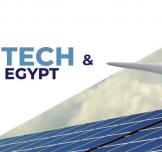
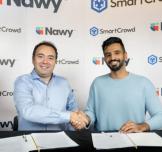
































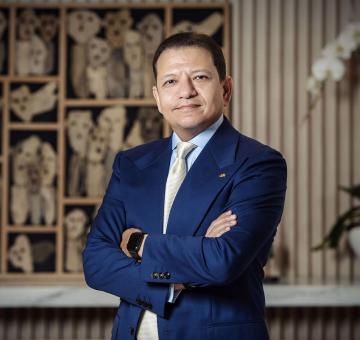
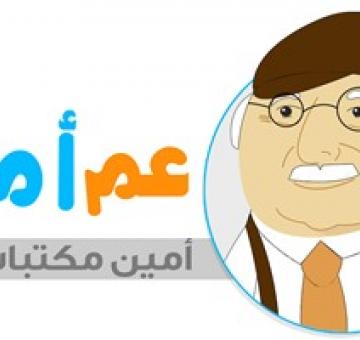









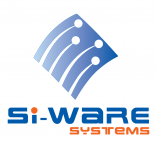


Egypt Innovate site is not responsible for the content of the comments